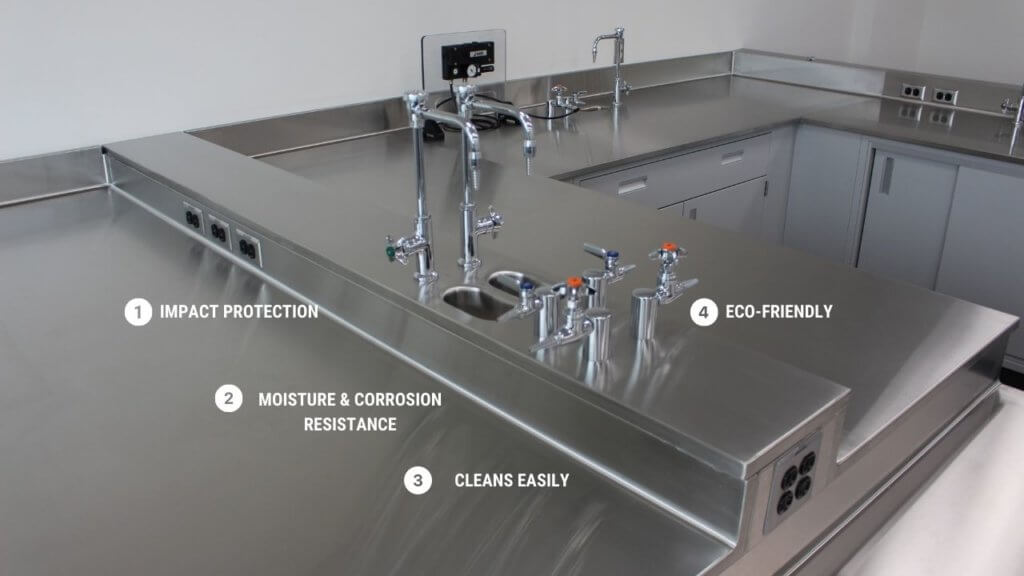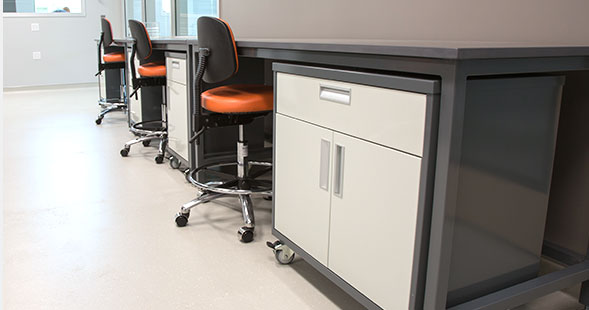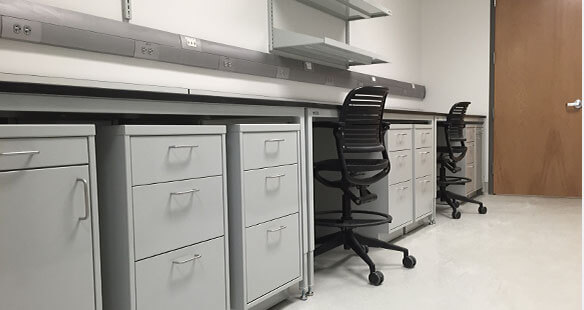When looking at 304 stainless steel verses 316, they are quite similar in appearance. However, 304 and 316 stainless steel do have considerable differences about them. Read below to see which type of stainless steel is best for your facility needs.
304 grade stainless steel is the most widely used grades for laboratory use. This versatile grade is great for many different applications due to it’s resistance to oxidation, corrosion, and general wear and tear. Type 304 is easy to fabricate and clean, enabling users to rest assured that their working environments stay contaminant-free.
316 can be used as a more heavy-duty alternative to 304. Type 316 is superior in it’s ability to resist corrosion and chemical damage, making it a go-to for demanding laboratory applications. While 316 tends to cost more up-front, it will serve as a long term investment and will need to be repaired and replaced far less than it’s alternatives.

Stainless steel offers high yield strength even at elevated temperatures. It is a preferred choice if durability and longevity are primary concerns. In the long run, stainless steel is the most cost effective investment in lab and industrial settings.
When handled properly, stainless steel offers top-of-the-line protection against damage caused by moisture or corrosive substances.
Smooth radius corners and non-porous surfaces make sanitation easy.
Stainless is both made from recyclable materials and is a recyclable material itself.
Food processing areas greatly benefit from stainless steel cabinets, because it is easy to clean and maintain.
Stainless steel cabinets are great for cannabis labs due to its moisture resistance and sterile properties.
Stainless steel casework has smooth radius corners and non-porous surfaces make sanitation easy for medical labs.
Regular facility cleaning is key when animals are present, and stainless steel is the most durable material for that purpose.
Just like pathology labs, stainless steel cabinets are common in autopsy spaces due to their high chemical resistance from constant exposure to strong chemcials and substances.
When handled properly, stainless steel cabinets offer top-of-the-line protection against damage caused by moisture or corrosive substances in agriculture usage.
Stainless steel cabinets are common in pathology labs because they can handle constant exposure to harsh chemicals such as formaldehyde.
Routine disinfection procedures in clean rooms require durable materials such as stainless steel that can withstand constant chemical stress.
Chemicals, moisture, heat, and impact can all vary greatly from project to project. From stainless steel, to phenolic resin and epoxy resin, we offer chemical and odor resistant finishes that endure spills and stave off corrosion.
Every lab is different. If you have a surface in mind or if you need assistance picking an optimal surface, we can help.
Browse through to see some of our past projects. No project is too big or small for us to handle. For more pictures of our stainless steel countertops and capabilities, head over to our client gallery.


We take pride in following industry standards of quality and sustainability. All of our products are tested, certified and sourced in a manner consistent with latest guidelines.

